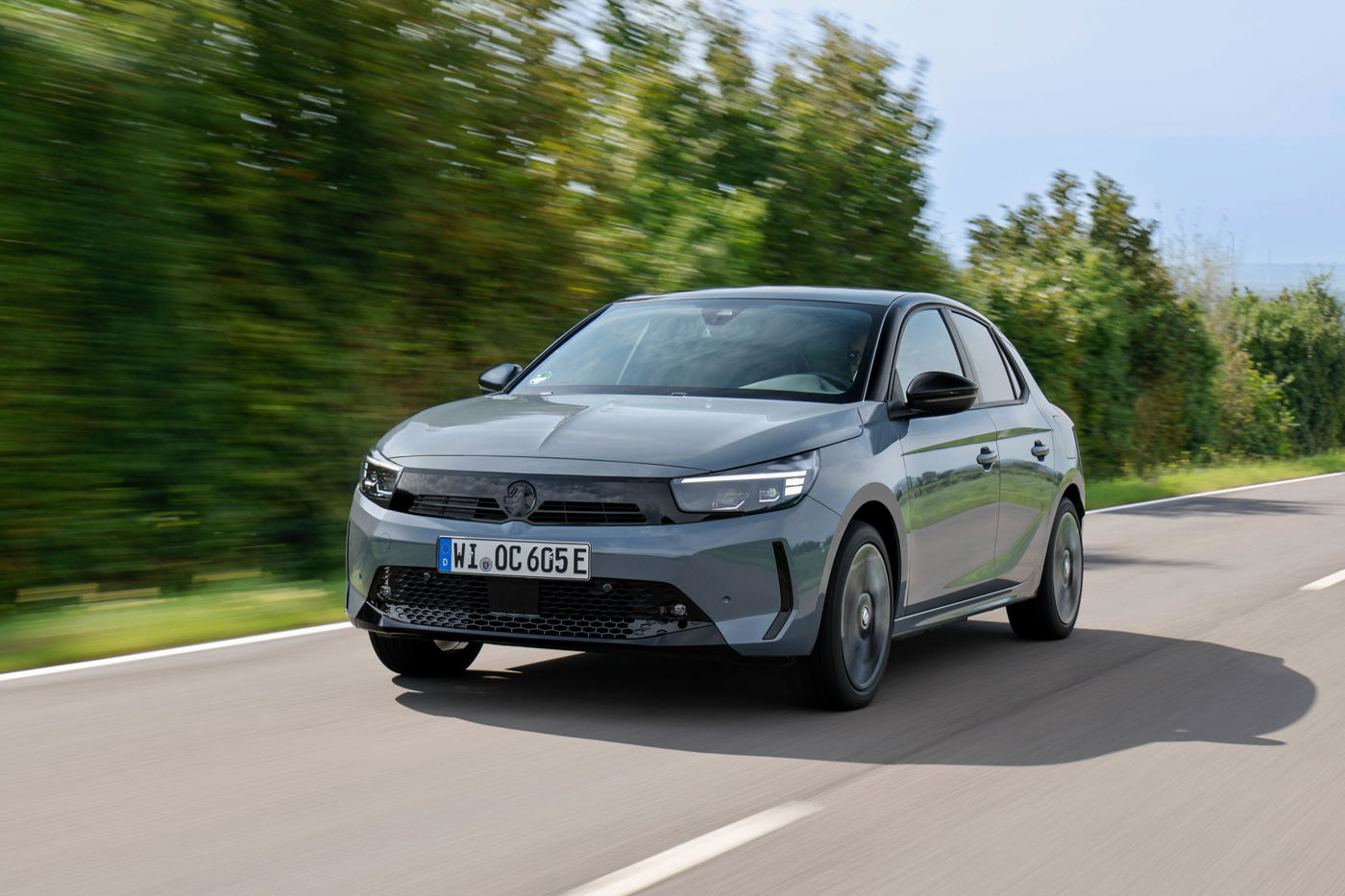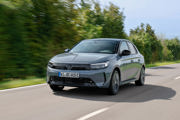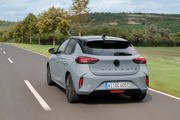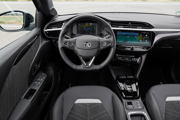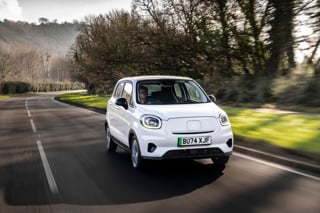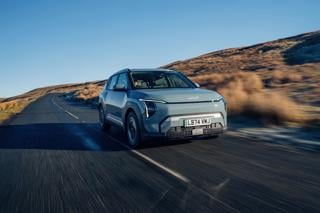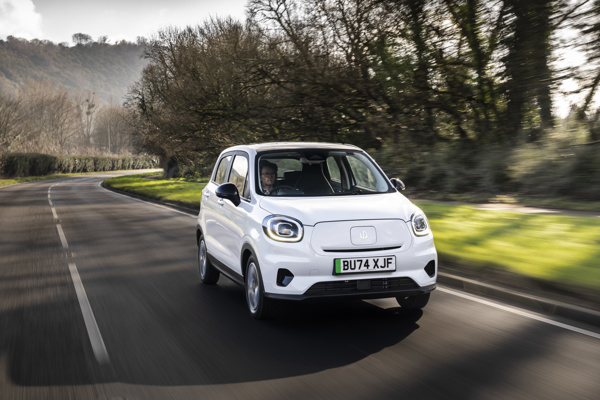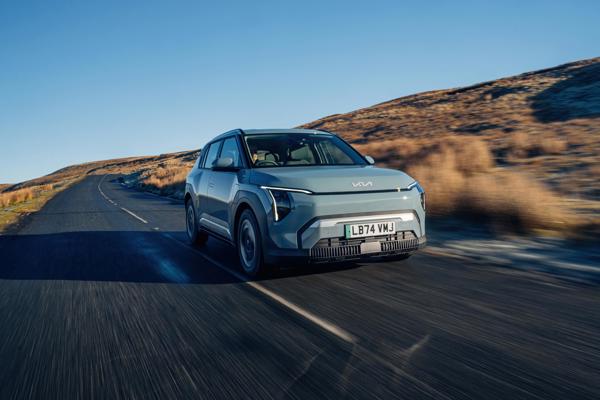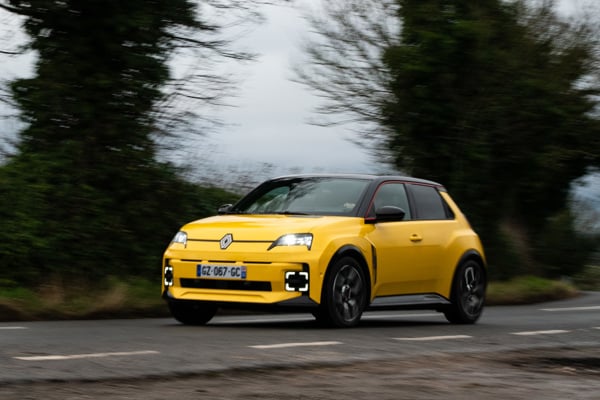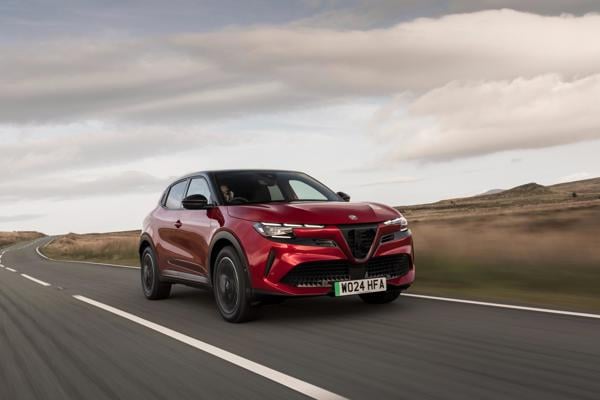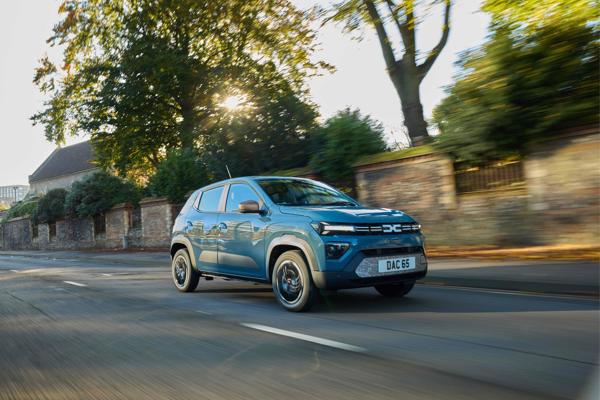Review
The Corsa is a firm favourite in the UK and for good reason. It’s stylish, practical and affordable. The electric version maintains these core attributes, offering a zero-emission alternative with very little compromise.
It’s not the sharpest car to drive and other, larger, EVs can be had for less money, but the Corsa Electric is a great all-rounder that is well-equipped and easy to live with.
Overview
The Vauxhall Corsa is the UK’s best-selling small car and the Corsa Electric has an important role to play as the country transitions to fully electric motoring.
While the majority of new Corsa models sold are still powered by petrol engines, the Corsa Electric is likely to be a lot of people’s first experience of electric motoring.
The look and feel of the Corsa Electric is very similar to that of a normal Corsa. It has the same smart exterior styling, a spacious and practical interior and is easy to drive. Living with a Corsa Electric should, largely, be a straightforward and easy experience.
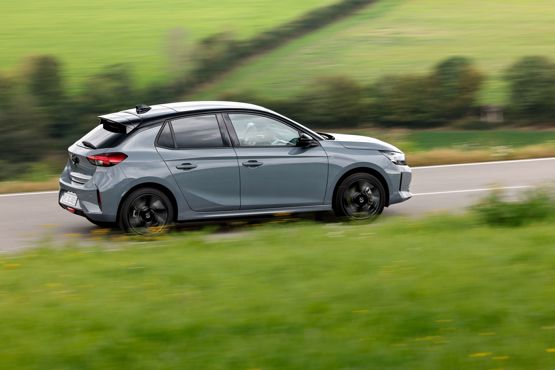
Following its launch in 2019, Vauxhall has updated the Corsa Electric for 2024, bringing a fresh face, new infotainment and revisions to the powertrain line-up.
The Corsa Electric is available with two powertrains across three trim levels. Prices start at £32,445 and the car’s key rivals include the new Mini Cooper Electric and the Renault Zoe. At the same price point, the MG 4 may also be a consideration.
Comfort and practicality
Clever packaging means the Corsa Electric doesn’t sacrifice any interior space when compared to the petrol-powered version. There’s plenty of space for front seat passengers and the seats are comfortable and supportive.
In the rear, the Corsa Electric is a little more cramped. Part of the problem is that in order for taller drivers to get a comfortable driving position, the seat has to be set quite far back, due to position of the pedals. It means those in the rear have less legroom, but for a small car it’s to be expected.
Compared to its key rivals, the Corsa Electric has a boot space advantage with 267 litres of space available. It’s slightly less than you get in a petrol-powered Corsa but sufficient for a couple of suitcases of a bunch of shopping bags. The rear seats can be folded to provide more space.
At a similar price point to the Corsa Electric, both the MG 4 and the Nissan Leaf provide more interior space.
While the Corsa Electric is twinned with the Peugeot e-208, the Vauxhall has a much more traditional interior layout. The steering wheel, instruments and switchgear are logically placed and easy to operate.
Material quality across the interior of the Corsa Electric is reasonable. The door panels and some parts of the dashboard use harder plastics, which feel a bit cheap. The interior is also only available in dark grey/black, giving a slightly drab feel.
Safety and Technology
Vauxhall has integrated a wide range of ‘big car’ driver assistance and safety features into the Corsa Electric. Across all models these include LED headlights with high-beam assist, lane departure warning with lane keep assist, speed sign detection, automatic emergency braking, rear parking sensors and cruise control.
From the middle grade (GS), there’s a reversing camera and blind spot detection. Range-topping versions (Ultimate) feature adaptive cruise control with automated steering assist, surround-view camera and adaptive matrix headlights.
As part of the facelift, the Corsa Electric gained a new 10-inch infotainment touchscreen which incorporates smartphone connectivity and a new user interface. It’s a big step up from the old system and is more user friendly, uses a higher-resolution display and better graphics.
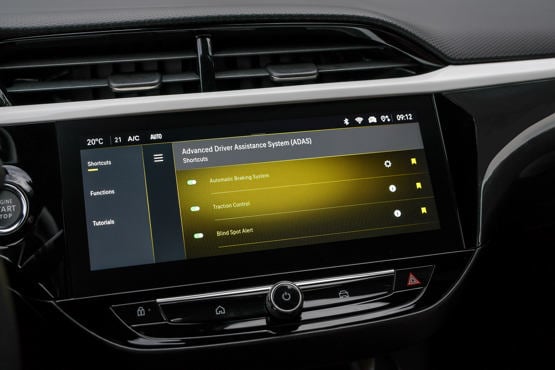
In keeping with the Corsa’s focus on simplicity, there’s a separate climate control panel beneath the screen, giving drivers straightforward access.
The Corsa Electric is also equipped with a digital instrument cluster, although the display is smaller than a regular instrument cluster and looks a little odd in the recess. The display quality is not as high as the central screen and while there is a degree of customisation, the controls - mounted on the indicator stalk - are little fiddly.
Driveability and range
For the first time, the Corsa Electric is available with two powertrain choices. Both available options are very close in terms of real-world performance, however.
The first option is carried over from the old Corsa-e. It uses a 136PS motor and a 50kWh battery. The car’s official range is 222 miles.
Vauxhall also offers a ‘Long Range’ powertrain, which has a more powerful 156PS electric motor and a larger 51kWh battery. It gives the car a WLTP range of 246 miles.
Both options deliver the same 260Nm of torque to the front wheels. The 136PS variant can reach 62mph from rest in 8.9 seconds. The 156PS model does it in 8.2 seconds.
In reality, it’s hard to differentiate between the two. With either powertrain the Corsa Electric is spritely enough. It doesn’t deliver a huge surge of power from the get-go, but it feels more responsive in the mid-range. You have to use the Sport driving mode, or floor the throttle, in order to access the motor’s full power output, otherwise it feels a bit lethargic.
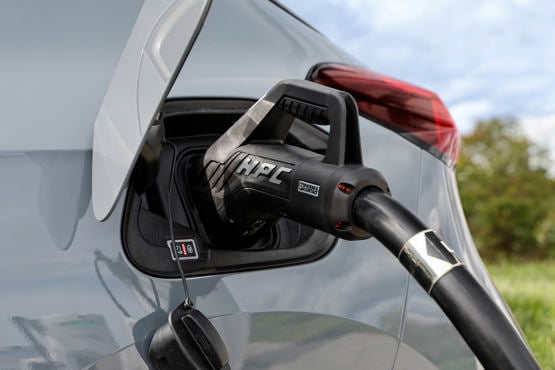
We were impressed at how refined the Corsa Electric is. There is very little unwanted noise inside, even at higher speeds. It cruises well on the motorway, feeling larger and more planted than its dimensions may suggest.
While driving we were achieving around 4.0mi/kWh, suggesting a real-world range of around 200 miles is possible in the Long Range model. It’s possible that with more urban driving the car would provide greater efficiency.
Our experience in the lower-powered model suggests that its real-world range is closer to 150 miles.
The Corsa Electric is setup better for comfort rather than handling. The ride is quite firm but it handles bumps well and there’s not a great deal of body roll in the corners. The steering is light and fairly quick, making manoeuvrability easy.
Company car tax and running costs
All Corsa Electric models attract a 2% benefit-in-kind tax rate, making them extremely desirable to company car users and those in salary sacrifice schemes. You can compare company car tax and running costs by clicking here.
Prices for the Corsa Electric start at around £12,000 more than the cheapest petrol Corsa, although the cost difference becomes smaller when wholelife costs are taken into account.
Across the line-up, running costs range from 44-48p per mile.
Vauxhall offers the 136PS motor in Design and GS trims, while the 156PS version is offered in GS and Ultimate.
There are only a couple of optional extras, in order to simplify ordering. A panoramic sunroof is available for £500 on Ultimate models and there’s a winter pack (£500) for the GS grade, which adds heated front seats and a heated steering wheel.
Charging times
3-pin plug: 22 hours
7kW wallbox: 7.5 hours
11kW AC: 5.25 hours
100kW DC rapid: 30 mins (0-80%)
Specs
| Manufacturer | Vauxhall |
| Model | Corsa Electric Hatchback |
| Specification | Vauxhall Corsa Electric Hatchback 100kW Design 50kWh 5dr Auto |
| Model Year | 2023.00 |
| Annual VED (Road tax) | £10 |
| BIK List Price | £28,990 |
| Range | 221.00mile(s) |
| CO2 | N/A |
| BIK Percentage | 2% |
| Insurance Group | N/A |
| CC | 1 |
| Fuel Type | Electric |
| Vehicle Type | Small car |
| Luggage capacity (Seats up) | 267litres |
| Doors | 5 |
Running Costs
| P11D | £28,990 |
| Cost per mile | 41.79ppm |
| Residual value | £6,800 |
| Insurance group | N/A |
| Fuel Type | Electric |
| Cost per mile | 182.38ppm |
| Fuel | 2.27ppm |
| Depreciation | 178.95ppm |
| Service maintenance and repair | 1.16ppm |
Rivals
Info at a glance
-
P11D Price
£28,990
-
MPG
N/A (WLTP) -
CO2 Emissions
N/A -
BIK %
2% -
Running cost
3 Year 60k : £6,800 4 Year 80k : £5,425 -
Fuel Type
Electric -
Range
221.00mile(s)



